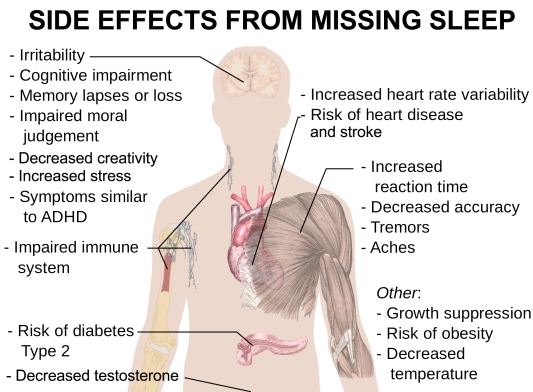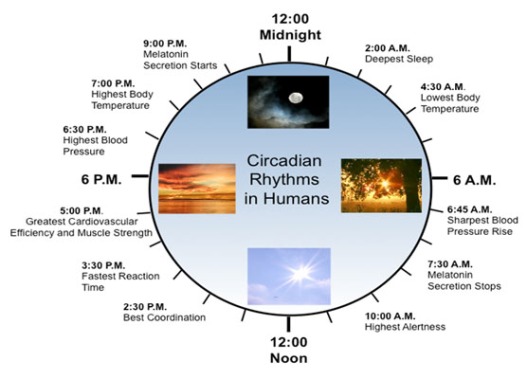There’s so much information about sleep on the internet. A wealth of knowledge at your fingertips, but do we use it? Do we change our habits to actually get enough sleep each night in our hustle and bustle world? Sadly, we don’t. Sleep tends to be the first thing we give up to make room for other things. I know, because I used to do that very thing!
Sleep, in my opinion, is the most important thing you can do to improve health. It’s also a great beauty booster!! I’ll admit, I had to learn this information the hard way. That alone makes me so excited to be able to share this information with you. You no longer have to suffer sleepless nights.
Sleep was the first thing I gave up to make room to do more in my day. When the kids were young, after they’d gone to sleep, I’d stay up late. It was my chance to finally watch some TV, read and have some “me” time without kids present. Sleep was also the one place I could reduce to create more time to catch up on work or anything else I didn’t finish in my day.
I survived on limited hours of sleep each night and pushed through my days. Beyond the bags under my eyes, my body was overrun with stress: Mommy stress, work stress, exercise stress, endless errands, housework, family obligations. Can you relate? My body also endured additional stress from lack of sleep, unbeknownst to me!
It was not only difficult to fall asleep, but stay asleep through the night. That pattern continued long enough to become a bad habit. A habit I needed to break. I had no idea at the time what I was doing to myself.
According to Healthy Sleep (a resource from the division of Sleep Medicine at Harvard Medical School’s website), there are consequences to insufficient sleep.
“In the short term, a lack of adequate sleep can affect judgment, mood, ability to learn and retain information, and may increase the risk of serious accidents and injury. In the long term, chronic sleep deprivation may lead to a host of health problems including obesity, diabetes, cardiovascular disease, and even early mortality.”

You can read the entire article here.
Until I experienced my own health problems, I never considered the value of a good night’s sleep. Of course I felt tired when I hadn’t had adequate sleep, but I never knew the further effects on my body. Believe it or not, hormone changes affect sleep as well. I found myself stuck in a perpetual cycle of insufficient sleep, cognitive impairment and wonky hormones! Things needed to change.
I researched better sleep quality, applied what I learned and began to see results!
I learned the value of a dark, cool room to sleep in. Getting rid of blue lights in the room and creating a consistent bedtime routine. I aimed for at least eight hours of sleep a night and going to bed at the same time each night.
These things help to reset our natural circadian rhythm. What’s our circadian rhythm, you ask? It’s our bodies’ natural 24-hour wake and sleep cycle. Allowing us to sleep when it’s dark and wake when it’s light outside.

Have you ever noticed when sitting around a campfire, the orange glow of the fire begins to make you sleepy? You go to bed shortly after dark and wake refreshed at dawn when camping. This is no accident; it’s your body responding to its natural circadian rhythm cycle. It’s key for a good night’s sleep.
The result from after implementing these sleep changes?
I felt better!!! My health began to improve once I got more sleep. My cortisol (stress) levels stabilized. I fell asleep faster and slept longer and sounder. I began to guard my sleep like never before and created improved sleep habits in return.
Although my sleep is not perfect every night, it’s a huge improvement from five years ago. Life’s not perfect- stressors come and go, but I now have the tools needed to ensure I give myself the best chance possible for a good night’s rest each night. As with other components of self-care; stress management, nutrition and exercise, I’ve chosen to make sleep one of my top priorities. In my opinion, self-care shouldn’t be a want—it should be a need. A necessity. Something we practice daily. When we care for ourselves first, we are better able to care for others. Not the other way around. Period.
I’m going to share with you the tips I’ve learned so you have the opportunity to improve your sleep, too. It’s worth testing them out to see what improvements you can make in your own sleep hygiene. Pay attention to how much better you feel with a little more rest.
Here are ways you, too, can reset your circadian rhythm at home:
- About an hour or two before bedtime, shut down any electronic screens such as the television, computer or smart phones. This will help your brain wind down before bed. Research shows the emitted blue and white light from electronic devices send signals to the brain that it’s still daylight outside. This light prevents our own production of melatonin and disrupts our circadian rhythm, which are both needed for a restful night’s sleep.
- Dim the lights throughout the house, or substitute orange bulbs or candle light after sunset. This will assist your brain in stimulating melatonin production and prepare to sleep. Since the invention of the light bulb, we are able to light up our world 24 hours a day, but this advancement has unfortunately fooled our brains into thinking it’s daytime all the time.
- Make sure your room is cool and pitch black. Cover the glow of a cable box light and clock so the blue light isn’t interfering with your sleep. Invest in blackout curtains or find a way to make the room completely dark at night. Avoid letting moonlight or outside street lighting into your room. If that’s not a workable solution, you can do what I do and use a light blocking sleep mask. A variety of masks are found online. You may have to experiment with a few styles to find your favorite fit.
- Go to bed roughly at the same time each night and get as many hours of sleep before midnight as possible. This will increase your Human Growth Hormone (HGH) production. HGH production is highest in our sleep cycle after we first fall asleep and before the hour of midnight. HGH repairs the body during sleep. As we age, we produce less. Something as simple as going to sleep a little earlier each day help our bodies restore and replenish during the night. What better reason to make this change?
- Go to sleep early enough that you can wake without an alarm. Aim for at least eight hours of sleep each night. If upon waking you’re still tired, you need more sleep. Adequate sleep will leave you waking refreshed and ready to tackle the day. Try moving your bedtime back 15 minutes until you find a time more conducive to waking rested.
- Get outside as often as you can throughout the day to help reset your body’s circadian rhythm. Take a stroll at sunset or step outside in the evening. Look to the sun upon waking. This will help reset your natural circadian rhythms through sunset and sunrise natural lighting.
- Avoid caffeine after 1 p.m. Caffeine stays in our systems six to eight hours after consuming. It can impact the ability to fall and stay asleep. Even alcohol can impair your ability to get a restful night’s sleep; another thing to be mindful of.
- Take five to seven deep breaths before bedtime. Open that airway to breathe deep into the belly following with a steady exhale through the nose. Try your best to avoid short breathing into your chest—I’m talking large, deep breaths here! Notice how much better you feel after just three breaths. Deep breathing helps lower cortisol levels and relaxes the body in preparation for sleep.
There you have it! Tools to help you improve your beauty sleep. Now you too can become better at prioritizing a good night’s sleep. All it takes is practice and consistency.
Nothing replaces a good night’s sleep for feeling like a million bucks. It’s your best beauty secret, your best body healer, productivity provider and fat loss optimizer. Lack of sleep can derail your best efforts in eating right and exercising, too. You owe it to yourself to get the best quality of sleep possible.
Your body will thank you.
Comment below on your tried and true strategies for a better night’s sleep. I’d love to hear from you!